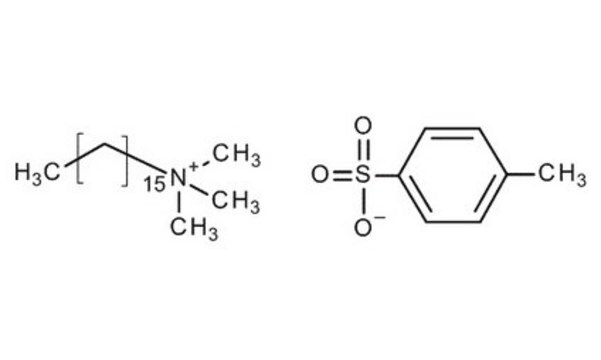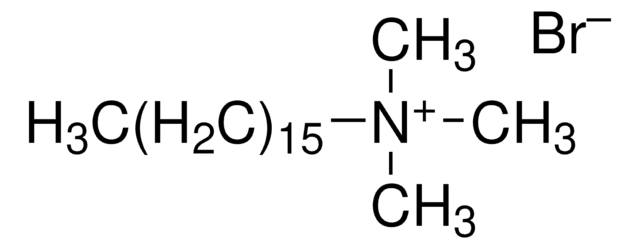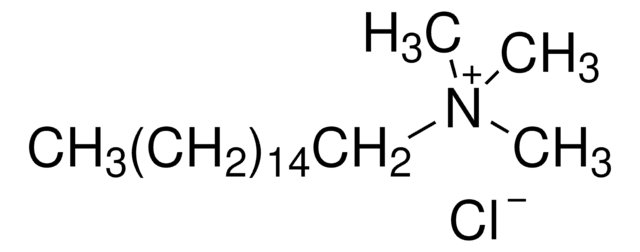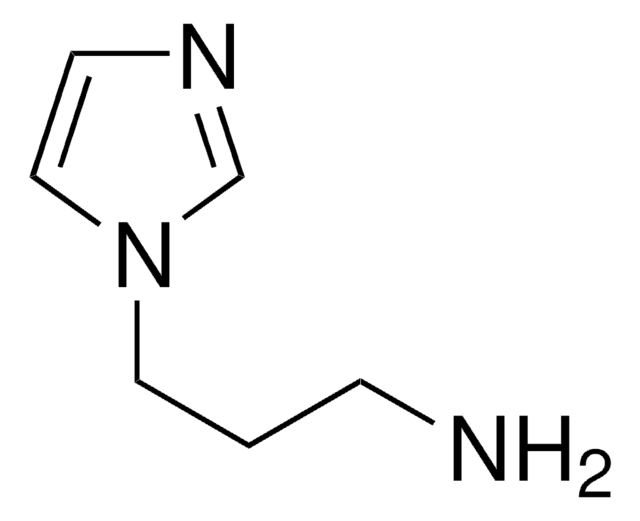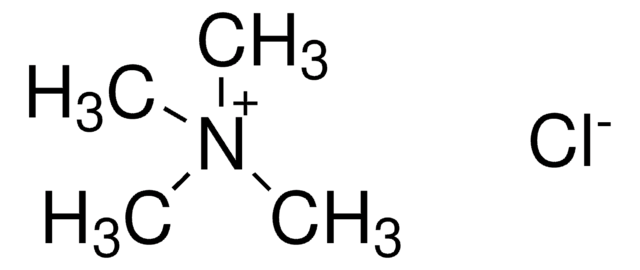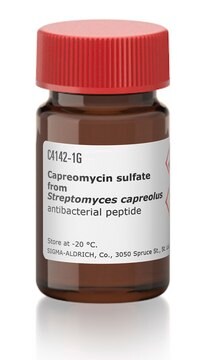C8147
Hexadecyltrimethylammonium p-toluenesulfonate
Sinónimos:
Cetyltrimethylammonium p-toluenesulfonate
About This Item
Productos recomendados
descripción
cationic
Nivel de calidad
Ensayo
≥98.0% (HPLC)
Formulario
powder
mol peso
455.74 g/mol
cadena SMILES
Cc1ccc(cc1)S([O-])(=O)=O.CCCCCCCCCCCCCCCC[N+](C)(C)C
InChI
1S/C19H42N.C7H8O3S/c1-5-6-7-8-9-10-11-12-13-14-15-16-17-18-19-20(2,3)4;1-6-2-4-7(5-3-6)11(8,9)10/h5-19H2,1-4H3;2-5H,1H3,(H,8,9,10)/q+1;/p-1
Clave InChI
MZMRZONIDDFOGF-UHFFFAOYSA-M
¿Está buscando productos similares? Visita Guía de comparación de productos
Descripción general
Aplicación
Palabra de señalización
Danger
Frases de peligro
Consejos de prudencia
Clasificaciones de peligro
Acute Tox. 4 Oral - Eye Dam. 1 - Skin Irrit. 2 - STOT SE 3
Órganos de actuación
Respiratory system
Código de clase de almacenamiento
11 - Combustible Solids
Clase de riesgo para el agua (WGK)
WGK 3
Equipo de protección personal
dust mask type N95 (US), Eyeshields, Gloves
Elija entre una de las versiones más recientes:
Certificados de análisis (COA)
It looks like we've run into a problem, but you can still download Certificates of Analysis from our Documentos section.
Si necesita más asistencia, póngase en contacto con Atención al cliente
¿Ya tiene este producto?
Encuentre la documentación para los productos que ha comprado recientemente en la Biblioteca de documentos.
Los clientes también vieron
Nuestro equipo de científicos tiene experiencia en todas las áreas de investigación: Ciencias de la vida, Ciencia de los materiales, Síntesis química, Cromatografía, Analítica y muchas otras.
Póngase en contacto con el Servicio técnico